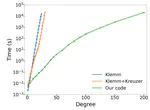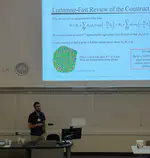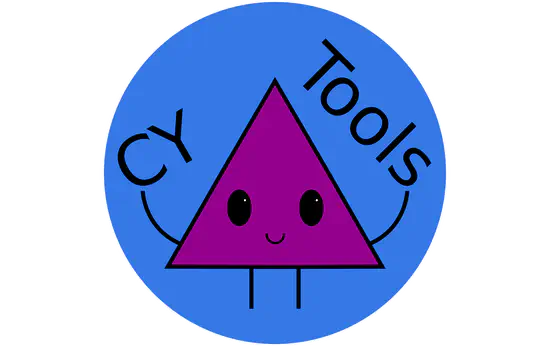Biography
I am a Research Software Engineer at Princeton University, working with the Institute for Research and Innovation in Software for High Energy Physics (IRIS-HEP). I focus on developing tools needed to tackle the challenges posed by the high volume and complexity of the data that will be collected at the High Luminosity Large Hadron Collider (HL-LHC) at CERN and other future HEP experiments.
Interests
- Software Development
- Scientific Computing
- Problem Solving
Education
PhD in Theoretical Physics, 2023
Cornell University
BS in Physics and Mathematics, 2017
Massachusetts Institute of Technology
Experience
Research Software Engineer
Princeton University
- Developing tools needed to tackle the challenges posed by the high volume and complexity of the data that will be collected in future High Energy Physics experiments.
PhD Researcher
Cornell Theoretical Particle Physics Group
- Studied string theory using computational algebraic geometry.
- Developed powerful algorithms that exponentially outperform previous mathematical software in key computations.
- Created CYTools, an open-source package that makes my computational advancements available to the string theory community.
- Devised machine learning techniques to explore solutions of string theory.
Undergraduate Researcher
MIT Center for Theoretical Physics
- Expanded novel algorithms to reduce inherent statistical noise in QCD simulations.
- Developed methods to improve storage efficiency of large datasets of lattice fields.
Undergraduate Researcher
MIT Laboratory for Nuclear Science
- Assessed prospects for future studies of the Higgs boson at particle colliders.
- Simulated and analyzed particle collisions to devise efficient algorithms to perform accurate measurements.
- Used novel statistical methods to detect subtle deviations from distributions.
Publications
Talks
Software Projects
A software package for analyzing Calabi-Yau manifolds in toric varieties.
Teaching
I have been a Teaching Assistant (TA) for the following courses:
- Electronic Circuits - Fall 2022, Spring 2023.
- Waves and Thermal Physics - Spring 2020.
- Interfacing the Digital Domain with an Analog World - Fall 2019.
- Oscillations, Waves, and Quantum Physics - Fall 2018, Spring 2019.
- General Physics I and II - Summer 2018.
- Electromagnetism - Fall 2017, Spring 2018.
Contact
- [email protected]
- (617) 682-0496
- 228 Alexander Street, Princeton, NJ 08540










